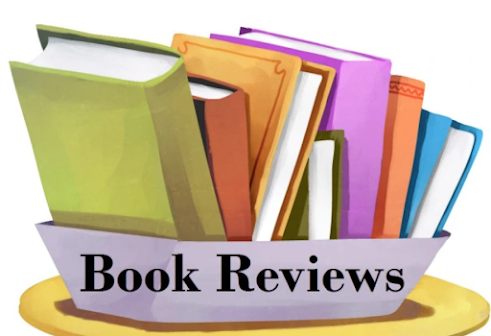Week 5 - Prompt Response
Different publications review different types of books and allow different types of conversations (ex. negative reviews aren't published, eBook only titles see little-to-no reviews in professional publications unless by a popular author, etc.). How does this affect collection development?
Regarding the eBook only romantic suspense title, The Billionaire's First Christmas, are both reviews reliable? How likely would you be to buy this book for your library?
Other than the blog review providing the book’s summary before their personal thoughts, neither review gave a full or compelling view of the characters, nor a peek into their motivations - Why is Robyn “Santa obsessed” and what is behind Aaron’s aversion? The Amazon review describes the romance as “beautiful” and “clean”, but what aspect do those describe, the language? Tone? Setting? I found the blog review to be meandering and not very focused, with potentially too much personal detail that didn’t really pertain to the book itself. Also, and this is just a personal pet peeve of mine, I was very distracted by the incorrect grammar, punctuation, and general flow of language in both reviews; while this aspect may have not been as much of an issue, had the other issues been resolved, it still would have drawn my attention away from the focus of the review.
Given all these reasons, and had there been a cost associated with it, I would most likely not choose this title for my library collection.
How do the provided reviews of Angela's Ashes make you feel about the possibility of adding it to your collection?
Do you think it's fair that one type of book is reviewed to death and other types of books get little-to-no coverage? How does this affect a library's collection?
How do you feel about review sources that won't print negative content? Do you think that's appropriate?
Circling back to my thoughts on the first question, I
believe it is the Publisher’s right to determine what type of review
conversations they allow to represent their company (and products), however,
fundamentally, I don’t agree with the practice of flatly refusing to print
negative content for products. I can understand the viewpoint of not wanting to
allow ‘troll-like’ behavior to potentially shed an unfairly negative light when
it is undeserved, but I also believe that people should be allowed to voice
their honest thoughts (in a respectful way, with reasonable arguments to back them
up). Subjectivity being what it is, a description one person might consider “too
gory”, another person may enjoy or find intriguing enough to draw them to a story, but both viewpoints should be allowed to be voiced.
How do you feel about reviews for personal reading, and what are some of your favorite review sources?
American Library Association. (2019, June 24). Diverse
collections: An interpretation of the library bill of rights. https://www.ala.org/advocacy/intfreedom/librarybill/interpretations/diversecollections
[Colorful books in a bowl titled Book Reviews]. (n.d.). GSA Summer Book Club. https://gsasummerbookclub.wordpress.com/how-to-write-a-book-recommendation/
Purdue Online Writing Lab. (2024). Writing a book
review. Purdue University. https://owl.purdue.edu/owl/general_writing/common_writing_assignments/book_reviews.html



Hello Maryanne!
ReplyDeleteThank you for your perspective. In contrast, I stated that I felt the imbalance in reviewing is somewhat fair, given that the amount of reviews given to a book is typically warranted. When a book has multiple reviews across many different journals, I know that there is a fair amount of prepub interest in the book, and it is worth my consideration. Alternatively, books that do not receive as many reviews typically do not warrant the attention, as unkind and blunt as that may sound. I have found that the patrons at my library typically do not "try out" new authors that often, and like to stick with what they know and what is popular at the time, so buying titles without many reviews could easily result in a low checkout count for the item. However, I do not disagree that it is a tad unfair. Unfortunately, that is just how the industry shakes out. I just trust the powers that be (Library Journal, Kirkus, Booklist, etc.) to curate a selection of titles that are more sure bets for the library's collection.
That's totally valid and I agree that the go-to, respected sources for book reviews have their reputations for a reason, and should continue to be utilized for general library collection development. However, I just hope that some sort of next-step solution can be workshopped for those lesser-known authors who deserve to have their voice heard, but don't yet have the spotlight presence to automatically draw the Kirkus/Booklist/Library Journal eye.
DeleteHi Maryanne! I agree with your points. Regarding negative reviews, it is the publisher's right to promote who they want, but it may be valuable in collection development. I understand the prevention of troll-like behavior, too! That would limit the value of a truthful review.
ReplyDeleteGreat job incorporating different resources to back up your thoughts. Excellent response!
ReplyDelete